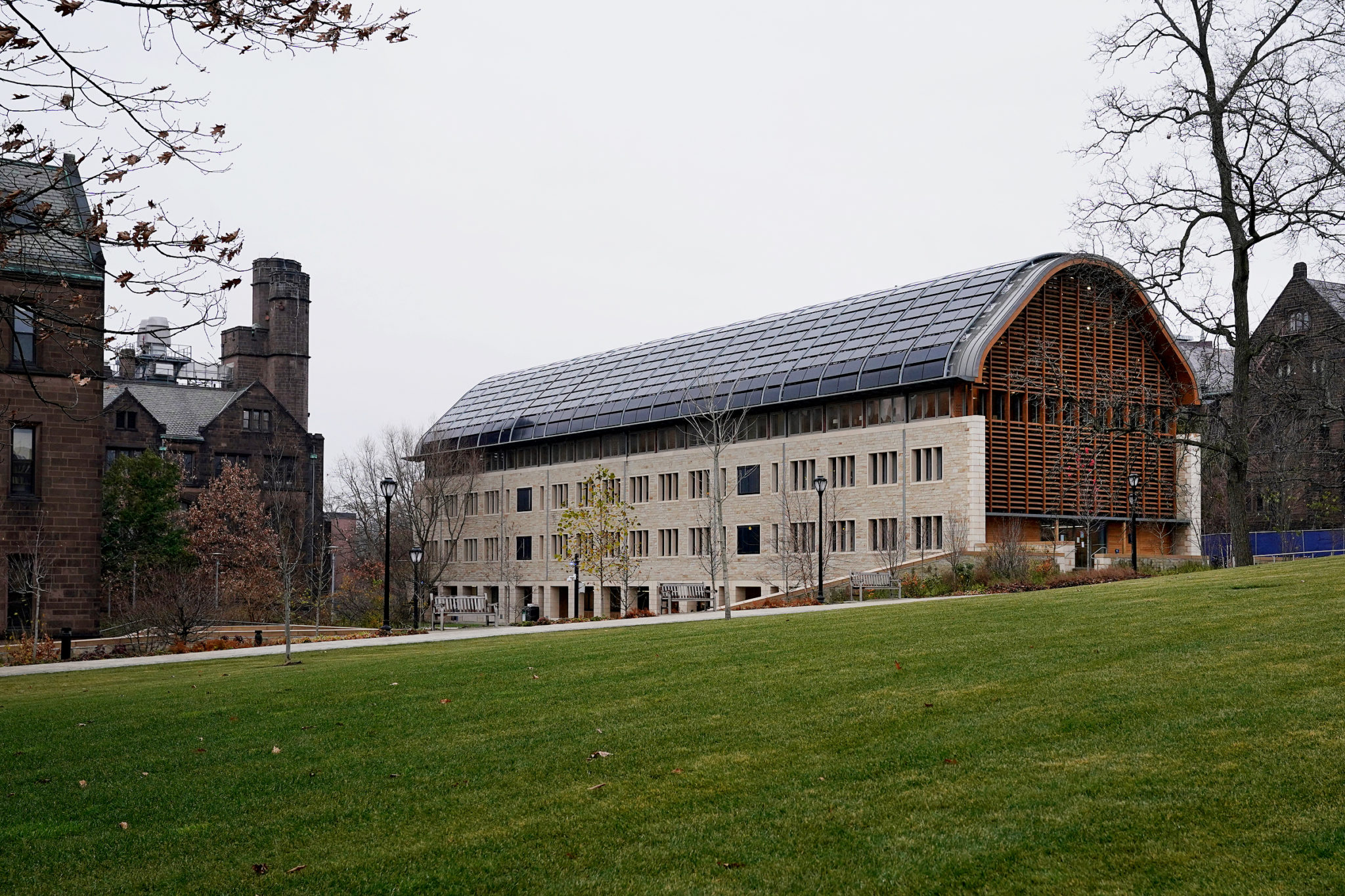YSEC explores intersection between arts and sustainability
A new project spearheaded by the Yale Student Environmental Coalition, will encourage students to incorporate environmental efforts into artistic expression.

Tim Tai, Photography Editor
In the fight to preserve the environment, one Yale student group is looking at art as an avenue for climate advocacy
The Yale Student Environmental Coalition is an umbrella organization for several environmental advocacy and activist groups on campus, organizing and supporting university-wide environmental efforts. This year, the organization will focus on initiating a new project utilizing the junction of the arts and sustainability to further their mission.
Project EnCOR, which stands for Environmental Culture of Responsibility, will be one of six projects housed by YSEC during the current academic year. This initiative intends to explore how environmental groups and organizations utilize art as a unique outlet for the exploration, insight and growth of environmental sustainability. EnCOR focuses on evaluating how many types of artistic expression, including performance, written work, art work and visual work, might be executed more sustainably and consciously.
“EnCOR is at the intersection of environmentalism and arts, a niche that isn’t currently being filled, addressing all the different ways campus life intersects with environmentalism,” said YSEC Co-President Madeleine Zaritsky ’25. “[It’s] important to have a positive and uplifting engagement with the environment. [There’s] so much environmental injustice, pollution and degradation worldwide. It’s a very depressing situation we’re in … but EnCOR is an opportunity to enjoy work in the environmental space to provide meaningful and inspiring artwork.”
In addition, the initiative intends to use these many forms of artistic expression to encourage more artists to address environmental challenges and problems through their work. In turn, EnCOR would be able to use the arts to stimulate fundraising and organization for environmental concerns.
Engaging the Yale community is essential to Project EnCOR, as it seeks to harness the unique college environment to encourage ways in which the student population may be more invested in these initiatives for producing environmental-centered art, fostering dialogue and taking action to safeguard the environment.
Zaritsky emphasized that the initiative is still attempting to attract more students with an interest in the environment and any form of art to participate with the work they are doing. These are the only requirements for participation.
Rose Hansen ’25 is leading the project. Hansen is committed to maximizing the impact that environmental justice and sustainability can have by utilizing the Yale community’s resources. This new, unique approach aims to optimize the ways in which art may serve as a medium for activism, education and sustainability by capitalizing on a variety of artistic practices.
Members of the YSEC that are involved with the project include the Environmentalists of Color Collective, GREEN at Yale, the Yale Student Energy Association, Yale Outdoors, the Animal Ethics Club and Students for Carbon Dividends — all working for the environment in different ways.
“There are numerous student organizations who write to the administration,” Hansen said. “Others work to change habits at the individual level. Project EnCOR seeks to build something in the middle ground.”
Hansen emphasized the significance of revitalizing the perception of environmental advocacy and actions.
The project seeks to foster more artistic production and identify areas where leaders and individuals can take meaningful action to improve the environment and existing challenges, according to Hansen. She further discussed the importance of viewing art organizations as leaders in the community and as “pillars of joy and celebration.”
“All of this relates to identifying and sourcing the numerous areas or levers necessary to identify change and implement a sustainable environment,” Hansen said.
Hansen stated that Project EnCOR is still in its infancy in terms of operational and coordination efforts, and she aims to build a devoted team that is willing to engage in the developing and evolving work of EnCOR.
The project is still identifying what works and establishing its future vision and focus to continue developing communal solutions for sustainability within the environment.
“It’s a really exciting project just in the sense that when people think about an environmental project, there’s a lot of pessimism,” said YSEC Co-President Sebastian Duque ’24. “It’s really sad to conceptualize climate change or environmental crises impacting people around the world. Art can help in that as it’s a good way of conveying information and encouraging activism.”
Duque voiced support for Hansen in this project’s execution. Discussing the benefits of this project, Duque emphasized the intersection of the arts and the humanities that will provide results and benefits for the environmental challenges and conditions facing society.
“Art can help in that as it’s a good way of conveying information and encouraging activism. It’s also a way to bring joy and love to the movement the way art does” Duque said. “That’s the beautiful thing about Project EnCOR because it allows us to do those two things.”
Meetings for Project EnCOR will be held on Saturdays in the Welch B Basement from 11 a.m. to 12 p.m.







